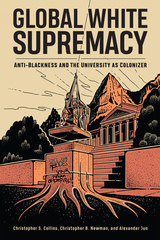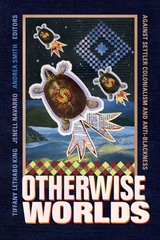3 books about Anti - Blackness

Anti-Blackness and Human Monstrosity in Black American Horror Fiction
Jerry Rafiki Jenkins
The Ohio State University Press, 2024
In Anti-Blackness and Human Monstrosity in Black American Horror Fiction, Jerry Rafiki Jenkins examines four types of human monsters that frequently appear in Black American horror fiction—the monsters of White rage, respectability, not-ness, and serial killing. Arguing that such monsters represent specific ideologies of American anti-Blackness, Jenkins shows that despite their various motivations for harming and killing Black people, these monsters embody the horrors that emerge when Black American is disassociated from American. Although these monsters of anti-Blackness are dangerous because they can terrorize Black people with virtual impunity, their “anti-Black sadism,” as Jenkins calls it, is what makes them repulsive. Jenkins examines a variety of these monstrous forms in Tananarive Due’s The Between, Victor LaValle’s The Changeling, Octavia Butler’s Kindred, Nnedi Okorafor’s Who Fears Death, and many other works. While these monsters and the texts that they populate ask us to think about the role that anti-Blackness plays in being or becoming American, they also offer intellectual resources that Black and non-Black people might use to combat the everyday versions of human monstrosity.
[more]

Global White Supremacy
Anti-Blackness and the University as Colonizer
Christopher S. Collins
Rutgers University Press, 2023
Knowledge is more expansive than the boundaries of the Western university model and its claim to be the dominant—or only—rigorous house of knowledge. In the former colonies of Europe (e.g., South Africa, Brazil, and Oceania), the curriculum, statues, architectures, and other aspects of the university demonstrate the way in which it is a fixture in empire maintenance. The trajectory of global White supremacy is deeply historical and contemporary—it is a global, transnational, and imperial phenomenon. White supremacy is sustained through the construction of inferiority and anti-Blackness. The context, history, and perspective offered by Collins, Newman, and Jun should serve as an introduction to the disruption of the ways in which university and academic dispositions have and continue to serve as sites of colonial and White supremacist preservation—as well as sites of resistance.
[more]

Otherwise Worlds
Against Settler Colonialism and Anti-Blackness
Tiffany Lethabo King, Jenell Navarro, and Andrea Smith, editors
Duke University Press, 2020
The contributors to Otherwise Worlds investigate the complex relationships between settler colonialism and anti-Blackness to explore the political possibilities that emerge from such inquiries. Pointing out that presumptions of solidarity, antagonism, or incommensurability between Black and Native communities are insufficient to understand the relationships between the groups, the volume's scholars, artists, and activists look to articulate new modes of living and organizing in the service of creating new futures. Among other topics, they examine the ontological status of Blackness and Indigeneity, possible forms of relationality between Black and Native communities, perspectives on Black and Indigenous sociality, and freeing the flesh from the constraints of violence and settler colonialism. Throughout the volume's essays, art, and interviews, the contributors carefully attend to alternative kinds of relationships between Black and Native communities that can lead toward liberation. In so doing, they critically point to the importance of Black and Indigenous conversations for formulating otherwise worlds.
Contributors
Maile Arvin, Marcus Briggs-Cloud, J. Kameron Carter, Ashon Crawley, Denise Ferreira da Silva, Chris Finley, Hotvlkuce Harjo, Sandra Harvey, Chad B. Infante, Tiffany Lethabo King, Jenell Navarro, Lindsay Nixon, Kimberly Robertson, Jared Sexton, Andrea Smith, Cedric Sunray, Se’mana Thompson, Frank B. Wilderson
Contributors
Maile Arvin, Marcus Briggs-Cloud, J. Kameron Carter, Ashon Crawley, Denise Ferreira da Silva, Chris Finley, Hotvlkuce Harjo, Sandra Harvey, Chad B. Infante, Tiffany Lethabo King, Jenell Navarro, Lindsay Nixon, Kimberly Robertson, Jared Sexton, Andrea Smith, Cedric Sunray, Se’mana Thompson, Frank B. Wilderson
[more]
READERS
Browse our collection.
PUBLISHERS
See BiblioVault's publisher services.
STUDENT SERVICES
Files for college accessibility offices.
UChicago Accessibility Resources
home | accessibility | search | about | contact us
BiblioVault ® 2001 - 2024
The University of Chicago Press









